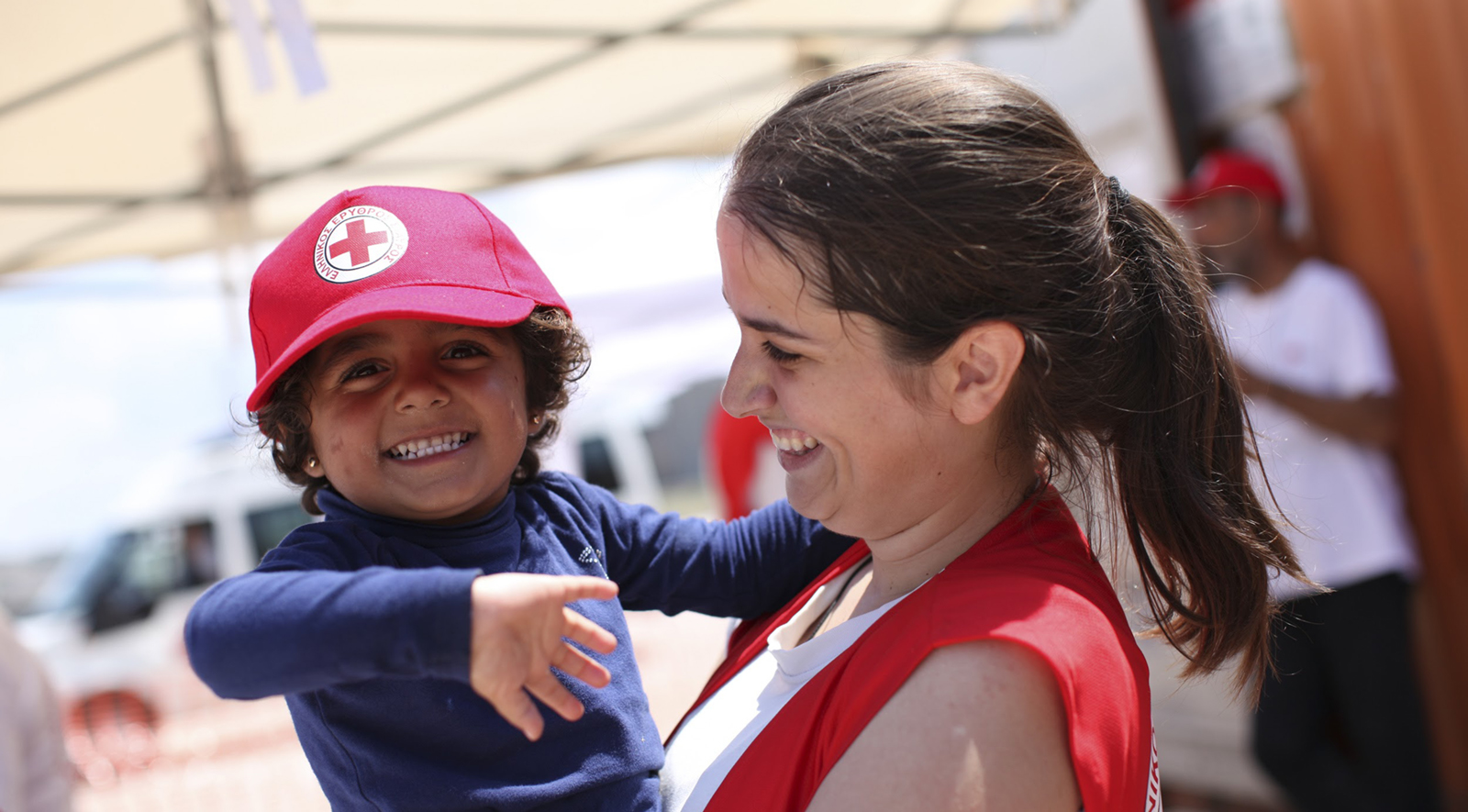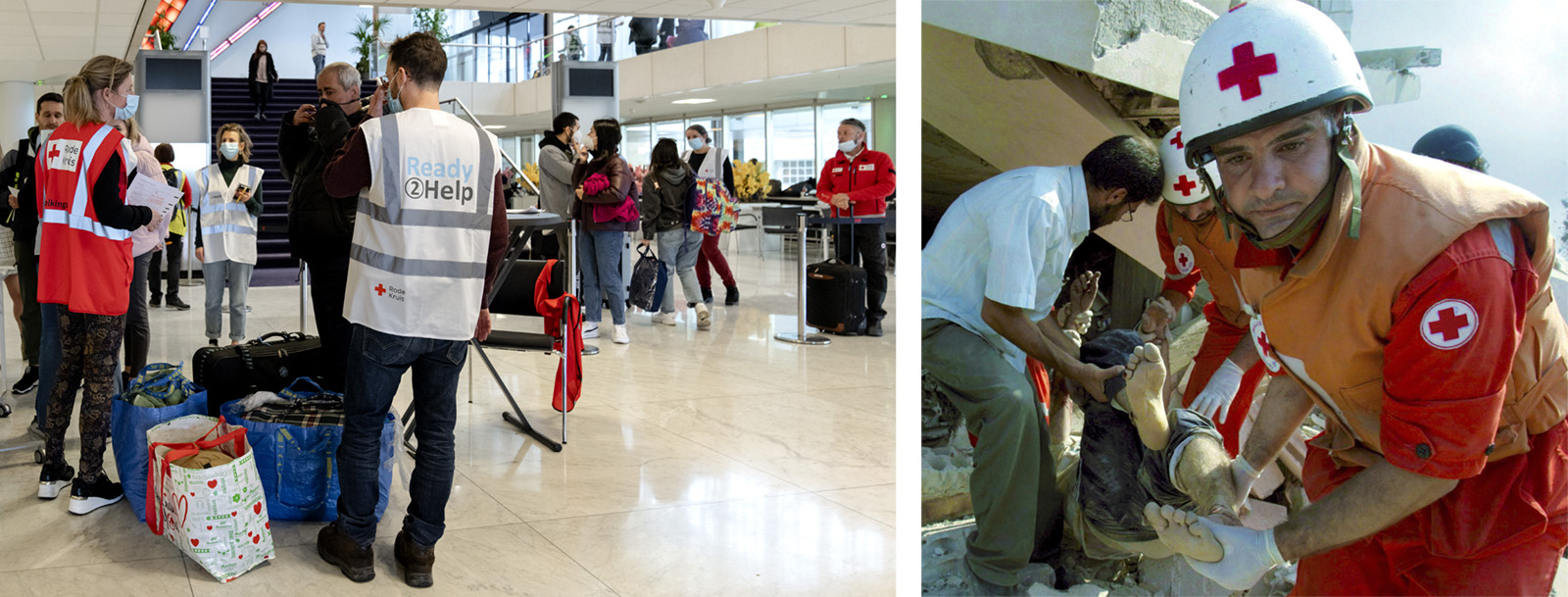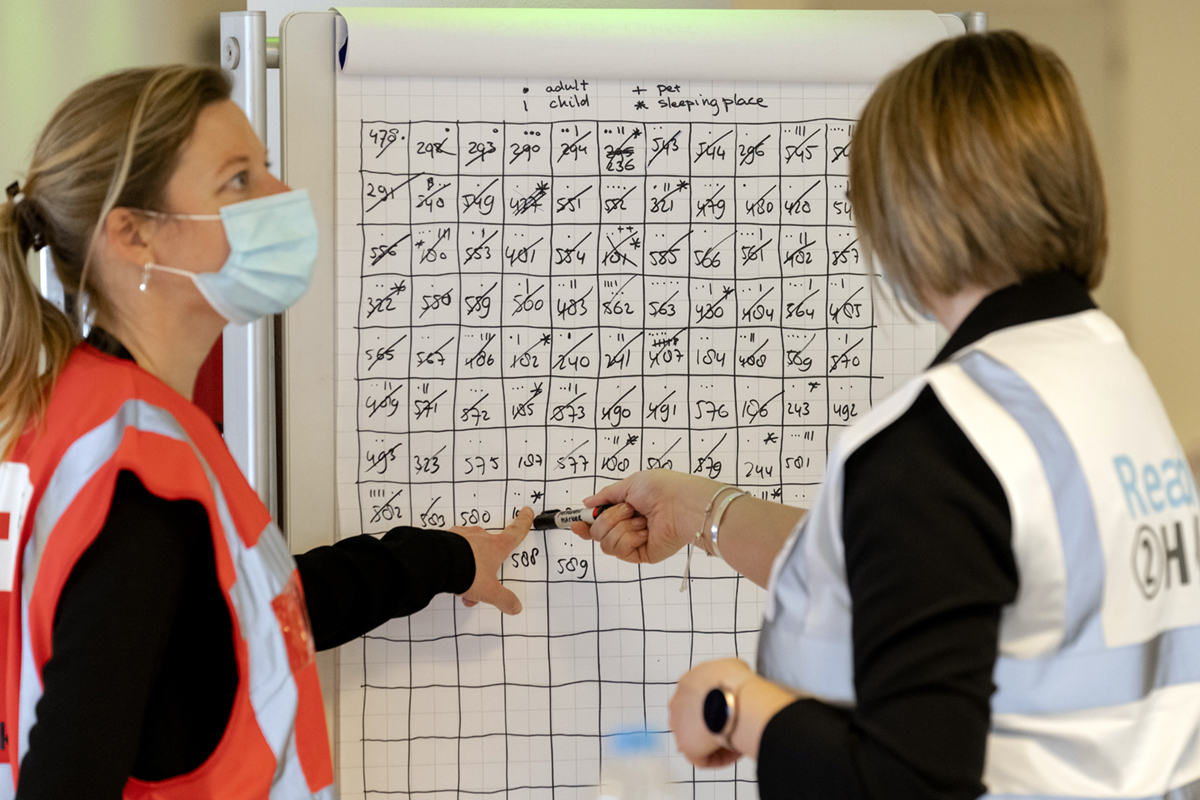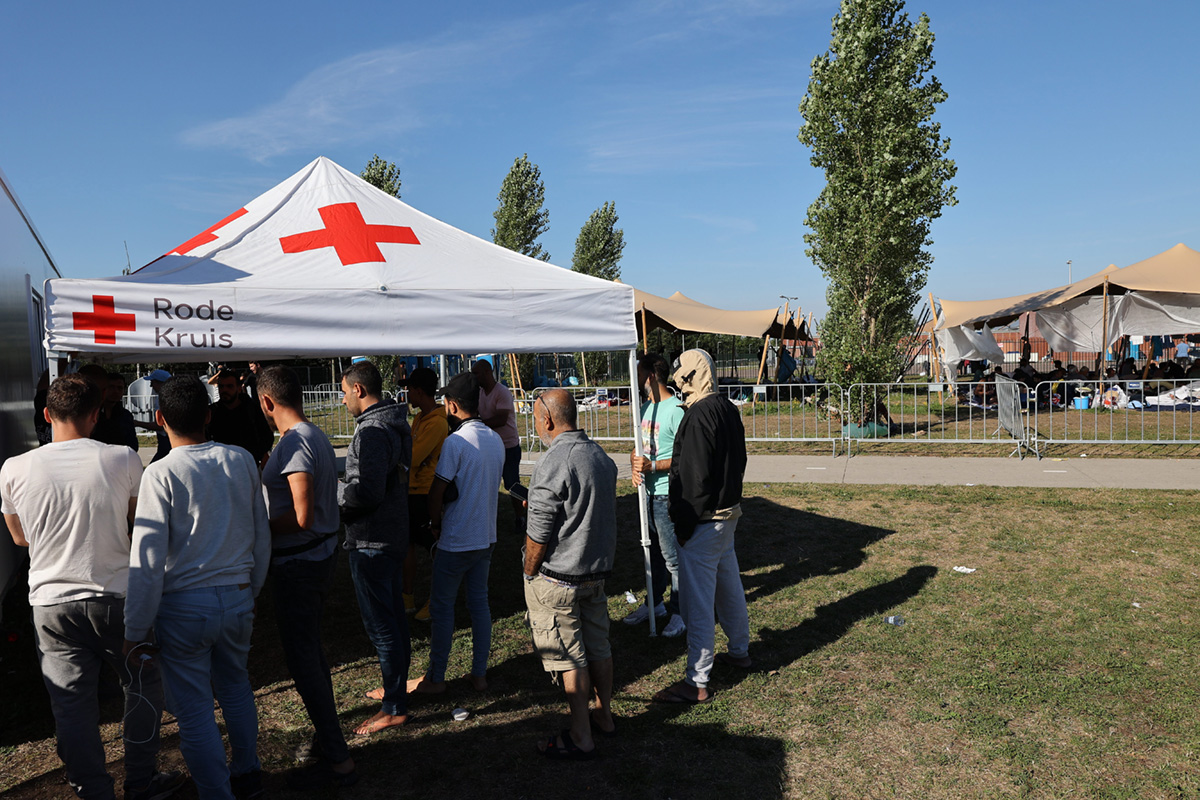
Reading time 9 minutes
This is how the fundamentals work in practice
The fundamentals are the foundation of the Red Cross and form the guiding principles for the choices made. This is not always easy; every situation requires a different solution. How principles such as independence, impartiality and voluntarism work in practice are explained through actual examples.
"The fundamentals are our drive, it’s what motivates us to do our work," says Tessa Beeloo, National Coordinator for Humanitarian War Law at the Red Cross. "We find that there are often questions about how the fundamentals are translated into practice, from volunteers for example. The advice we give can vary from situation to situation. In doing so, we always look at how the fundamentals relate to each other. What advice has been given in the past and what is happening internationally. This is discussed within our team and with other departments. This way, we are transparent and ensure that the choices made are widely supported by the organisation.”

Humanitarian Service Point
Because of the war in Ukraine, millions of people had to flee the country. In the Netherlands, many refugees arrived by train. As a result, the municipality of Amsterdam opened a Humanitarian Service Point (HSP) at the Amsterdam Central Station earlier this year. Red Cross volunteers were also working there. Its location had to be easily located by refugees from Ukraine. Tessa: "But how do you make that clear to people who don't speak our language? That's when you see the power of our globally known emblem, with which we make it known that the Red Cross is active." In July, the municipality of Amsterdam tightened the policy, barring refugees without Ukrainian passports from entering the HSP. However, the Red Cross believes that all refugees should be given shelter, regardless of their origin. So That’s why we transferred our work for this HSP to the municipality. "This decision is a good example of how important our fundamentals are. Under the conditions set, we could no longer provide the help we stand by, so the Red Cross retracted. That doesn’t mean we are not doing our job. In these cases, we look for other ways to provide help to all the people who need it, and we succeeded to do so."

Tents for Ter Apel
In June, the Red Cross raised the alarm about the degrading situation in Ter Apel. Tents were erected to provide emergency shelter for asylum seekers who had to spend the night outside. A few days later, the tents were taken down again, as the government had promised to provide better shelter. "By erecting these tents, the Red Cross showed that the responsible parties were failing. This way we made it clear a limit had been reached and something had to be done. It was no longer about a political lobby, but about people who needed protection, that very same night." This action spurred agencies to take steps towards full accommodation for asylum seekers. "When that happens, it is important that we step back. We should never step into the shoes of the agency responsible.”
“By erecting tents, the Red Cross showed that the responsible parties were failing”

Voluntarism
The fundamental principle of voluntarism can also be interpreted in different ways in practice. "We saw this, for example, during the COVID-19 crisis when paid staff started doing work previously done by volunteers. This was necessary because there was a prolonged emergency. Then you run into the limits of what you can ask of volunteers. The use of paid staff was necessary to relieve volunteers of the work. As an organisation, we then look at the question of what voluntarism is: what does volunteering actually mean? Since the Red Cross places enormous value on the relationship with volunteers, it is very important to be transparent about how these choices are made.”
Sometimes there is an end to help
When there is tension between one of the fundamentals and a particular relief aid situation, we as Red Cross continue to engage with the parties involved for as long as possible. "We may intervene on our own initiative the moment we see that there are groups of people who need help. In doing so, we work at the limit of what political policy can offer. We always operate within the framework of national legislation and do not carry out illegal actions. Sometimes it’s complicated – of course – to have to say we can't go any further. Everyone is very driven to roll up their sleeves for people who need our help. From this, I think we learn that we are a unique organisation. When we have to take a step back, it is a clear signal to society. At such moments, we find out who we truly are and what we stand for.”
“If we have to take a step back, it is a clear signal to society"
